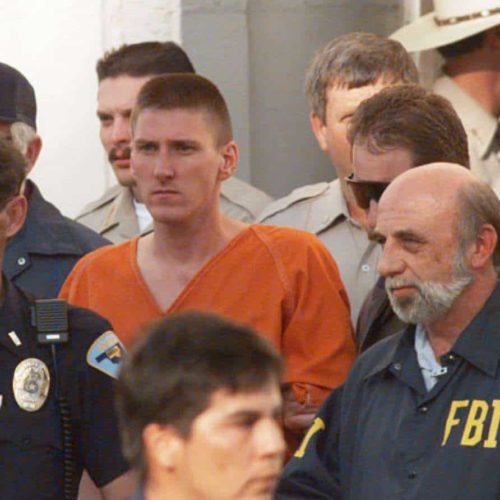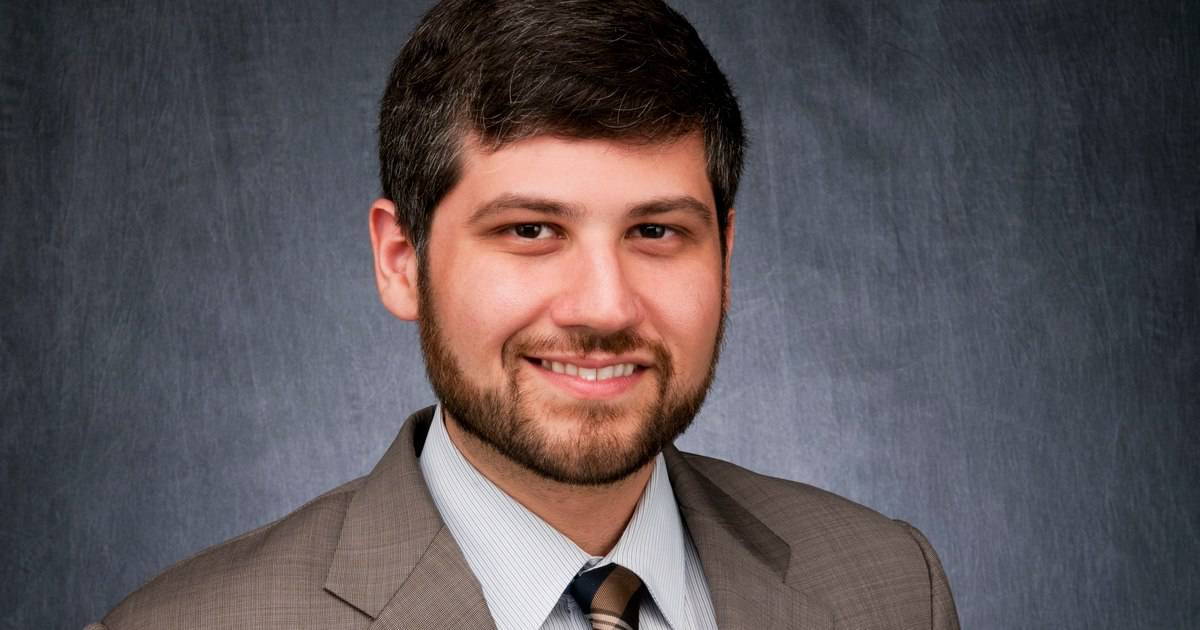Introduction
A once-classified FBI memo reveals that the bureau treated a senior ABC News journalist as a potential confidential informant in the 1990s, pumping the reporter to ascertain the source of a sensational but uncorroborated tip that the network had obtained during its early coverage of the Oklahoma City bombing.
The journalist, whose name is not disclosed in the document labeled “secret,” not only cooperated but provided the identity of a confidential source, according to the FBI memo — a possible breach of journalistic ethics if he or she did not have the source’s permission.
The ABC employee was even assigned a number in the FBI’s informant database, indicating he or she was still being vetted for suitability as a snitch after providing “highly accurate and reliable information in the past” and then revealing information the network had obtained in the hours just after the 1995 terrorist attack by Timothy McVeigh.
The journalist “advised that a source within the Saudi Arabian Intelligence Service advised that the Oklahoma City bombing was sponsored by the Iraqi Special Services who contracted seven (7) former Afghani Freedom Fighters out of Pakistan,” an April 17, 1996 FBI memo states, recounting the then-ABC journalist’s interview with FBI agents a year earlier on the evening of the April 19, 1995 bombing. (The Iraqi connection, of course, never materialized.)
The memo recounts multiple contacts between the FBI and the journalist over a one-year period in 1995-96 but does not name the network insider, instead using the informant number NY290000-SI-DT and a simple description as “a senior official employed by ABC News for over 15 years.”
ABC News told the Center for Public Integrity that it is not certain about the identity of the journalist involved in the 1995-96 episode, but does not believe he or she still works for the network. Spokesman Jeffrey Schneider said the FBI description of its interactions with the reporter raises serious concerns about intrusions on the First Amendment.
“If true, it would certainly be of grave concern to us that the FBI would have created an informant file based on information gleaned from a reporter,” Schneider said. “It certainly would be very troubling for the FBI to recruit a news employee as a confidential source.”
“It can create a perception of collusion between the government and the news organization. It would put journalists everywhere at risk if people believed that journalists are acting as government agents. And it could raise the specter of the government trying to spy on a news organization,” he added.
Former ABC investigative news producer Christopher Isham, now a vice president and Washington bureau chief for CBS News, issued a statement Tuesday evening denying he ever agreed to be treated as an informant after the blog Gawker speculated he was the journalist mentioned in the FBI memo.
“The suggestion that I was an informant for the FBI is outrageous and untrue,” Isham said in a statement released by CBS. “Like every investigative reporter, my job for 25 years has been to check out information and tips from sources. In the heat of the Oklahoma City bombing, it would not be unusual for me or any journalist to run information by a source within the FBI for confirmation or to notify authorities about a pending terrorist attack.
“This is consistent with the policies at every news organization. But at no time did I compromise a confidential source with the FBI or anyone else,” he said. “Mr. Cannistraro was not a confidential source, but rather a colleague – a paid consultant to ABC News who had already spoken to the FBI about information he had received.”
In a separate statement, CBS said the network was reviewing the memo and has its own strict rules for handling source material. But it added it considered the allegations in the memo “a matter between the FBI and ABC News.”
FBI officials declined to identify the reporter, but confirmed to the Center for Public Integrity that the bureau did in fact treat the reporter as a potential confidential source for a limited period of time as it tried to ascertain the validity of the information suggesting Iraqi involvement in the Oklahoma City bombing.
Bureau officials said it was possible that over the years other reporters and members of other sensitive professions have been treated in FBI files as potential informers — even if those people did not intend to act as bureau sources — but such contacts are governed by strict rules.
“There have been, and at the time of this memo there were, strict rules in place to govern the handling of reporters and people in other sensitive professions as sources of information,” Assistant FBI Director Michael Kortan said Monday. “There is no reason to think, regardless of what we gleaned from the memo, that those rules were not followed at the time of this memo.”
The memo was recently discovered by Utah lawyer Jesse Trentadue, who has spent years researching the Oklahoma City case trying to prove a connection between the terrorist bombing and the death of his brother in an Oklahoma prison in the summer of 1995.
The root of the memo lies in Trentadue’s relationship with Terry Nichols, one of the defendants convicted in the 1995 terror attack, who is serving life in prison. Trentadue recently found the document — unredacted and still marked secret — in a box of documents gathered by Nichols’ defense attorneys.
The memo suggests the ABC journalist reached out to a counterterrorism agent in New York City on his or her own the night of the bombing, in part because the information acquired suggested that “there were two other bombing incidents planned” soon at government offices in Houston and Los Angeles.
The journalist agreed to be interviewed by counterterrorism agents again the next day, the memo says, but refused to identify his or her source.
Nearly a year later, the network staffer was contacted by the FBI and agreed to divulge ABC’s source for the uncorroborated claim: a former CIA officer named Vincent Cannistraro, who was on contract to the network as a consultant, who, in turn, had gotten the information from a Saudi general.
During the 1996 re-interview, the ABC employee was questioned about the “source of questioned information” and “advised that the source was VINCENT CANNISTRARO, former Counter-Terrorism Chief of the Central Intelligence Agency (CIA),” the memo stated.
The reporter further related that “when questioned regarding his source of this information, CANNISTRARO confirmed that it was a ‘General within the Saudi Arabian Intelligence Service,’” the memo stated.
In an interview this week, Cannistraro said he was surprised that an ABC journalist had contacted the FBI and relayed the information, in part because it had not been corroborated and was just a rumor passing through Saudi circles.
Cannistraro said he provided the information himself to the FBI immediately after the bombing because of suggestions there might be imminent additional attacks possible, but hadn’t authorized ABC to release the information.
Cannistraro called the memo “interesting” and noted that when he worked for the CIA they had rules in place blocking the use of journalists as sources. He said being “outed” was “not a concern” because he had already shared the information with the bureau.
Journalism ethics experts said the memo’s description of the relationship between the FBI and the ABC reporter was troubling.
“Obviously any reporter who is simultaneously working for a media outlet and giving info to the government has a conflict of interest, says Jill Olmsted, who teaches journalistic ethics in her role as journalism division director for American University’s School of Communication.
Olmsted acknowledges that there are situations in which a journalist should share information with the government, particularly when there is a danger to the general public or a life is at stake. But she calls sharing information with the government a “slippery slope.”
Tim McGuire, a journalism professor at Arizona State University, believes the fact the reporter was assigned an informant number and had contributed information in the past precludes any argument that he was sharing this information in the public good.
“I mean, he’s not only a rat, he’s a really huge rat” says McGuire. “He’s obviously decided that helping the government on an ongoing basis is more important than being a journalist.”
McGuire also warns that journalists acting as agents can have a harmful — even dangerous — impact on the profession. “We’re all endangered by him playing these silly games,” he says. “I think when you’re an agent for the government, you’re putting your fellow journalists in harm’s way.”
“We don’t like being used as an arm of the government to get information because that’s what they do in repressive regimes, not in a society where we’re based on freedom of the press,” says Olmsted. “So I find that very disturbing.”
Occasionally, reporters face a conundrum in which they come into possession of information about a plot that might put people or property in danger or pose a risk to national security. Most news organizations have strict policies for handling such circumstances and reporting safety concerns to authorities through official channels.
Schneider said ABC has long had rules requiring such episodes to be raised directly to the president of network news, or his designee, who then would decide whether to report such information directly to the FBI director.
He said the memo’s description of the reporter approaching agents himself and then acquiescing to an interview a year later — in which specific news sources were divulged — seemed to flout the network’s long-established policy.
“Based on your reporting, we believe the employee involved in the reporting no longer works here,” Schneider said. “Based on the description in the memo, this would not have followed that policy, but I cannot account for who this reporter may have talked with at the time.”
The memo shows several high-ranking FBI officials were involved in approving the approach to the ABC reporter, including Supervisory Special Agent Thomas Nicoletti and Thomas Pickard, then a special agent in charge of the FBI’s New York office who eventually would rise to the No. 2 job in the bureau.
Nicoletti was reportedly hired by ABC after his retirement from the FBI, working as a consultant for the network’s entertainment division on a movie about the Sept. 11, 2001, terror attacks. He eventually resigned to protest the movie’s portrayal of the tragedy.
Nicoletti could not be reached for comment.
Last fall, the FBI faced questions about its use of another journalist, the late photographer Ernest Withers, when documents released several years after his death showed he had been paid during the J. Edgar Hoover years as an informant to spy on Martin Luther King Jr. during the civil rights movement. That case involved a much more involved relationship than the one described in the FBI memo from the Oklahoma City case.


Join the conversation
Show Comments